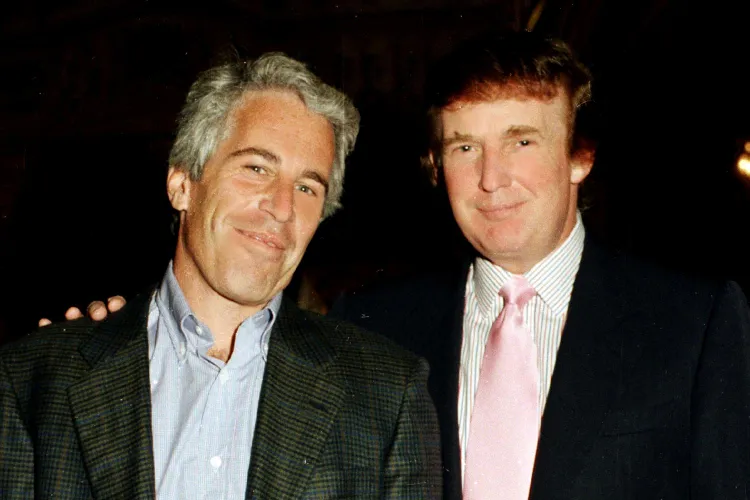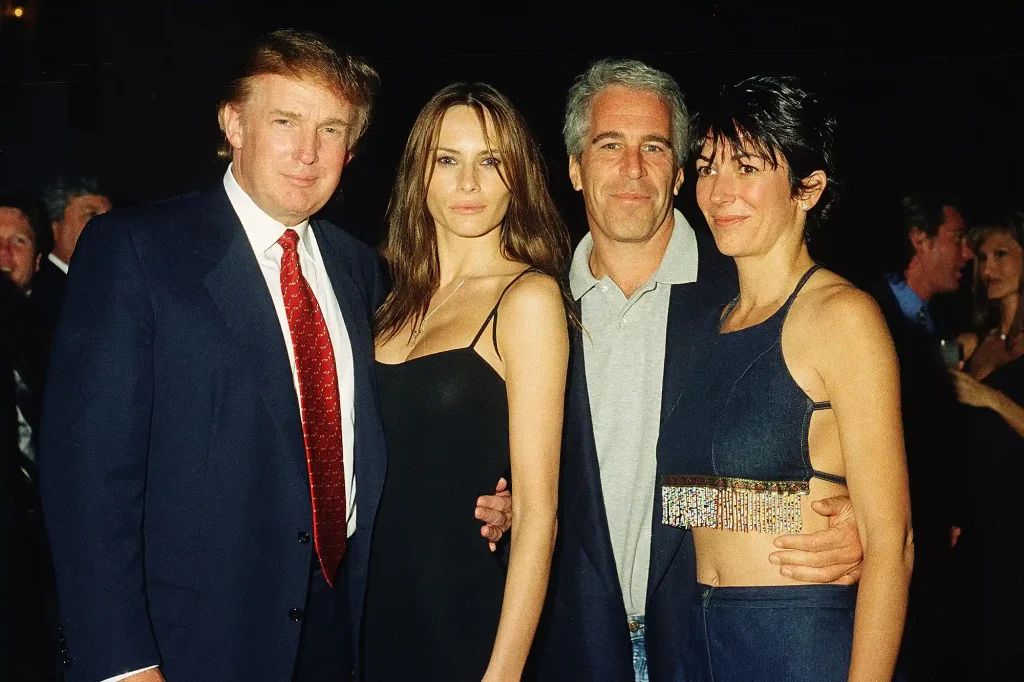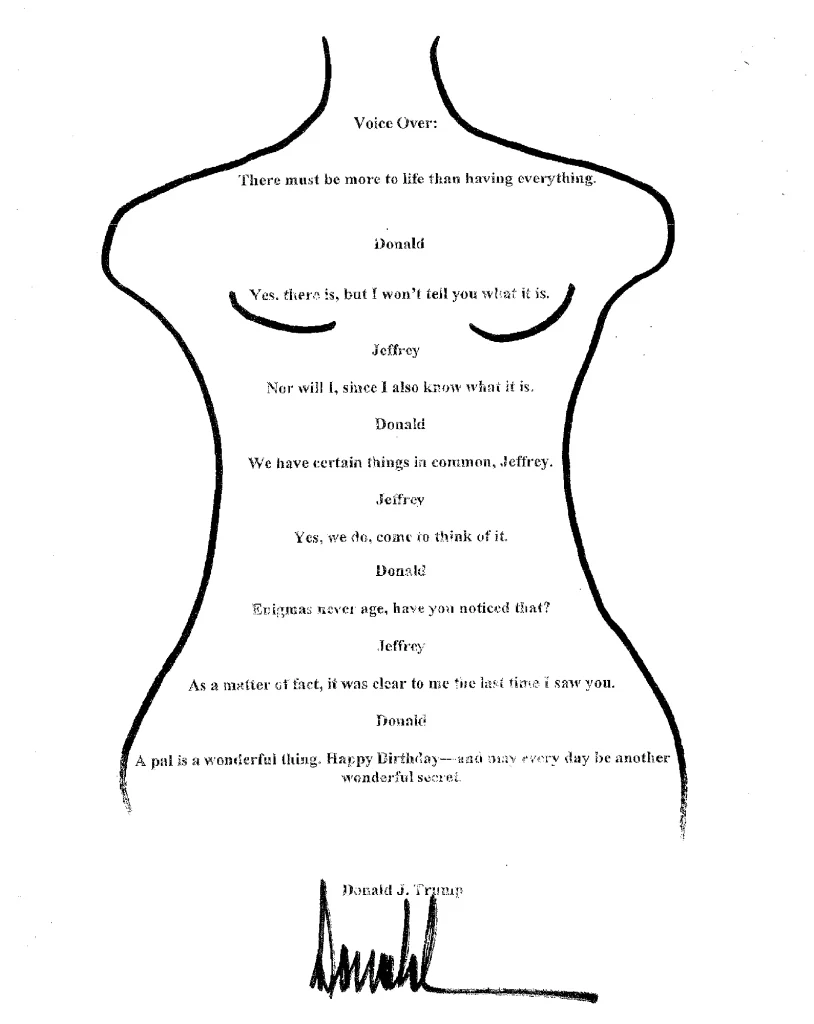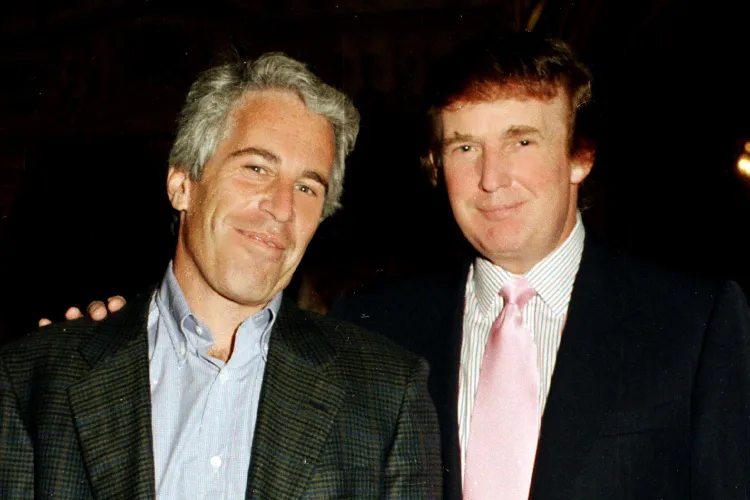Three Newly Released Emails From Jeffrey Epstein Allegedly Show Donald Trump Was Aware of His Sex-Trafficking Network — and Spent Hours with a Victim
In a development that has reignited scrutiny over the long-shadowed relationship between the late financier Jeffrey Epstein and former President Donald Trump, newly released emails disclosed by Democrats on the House Oversight Committee appear to lay bare disturbing assertions. The correspondence, shared on November 12, 2025, includes three email exchanges from Epstein’s estate that suggest Trump “knew about the girls” exploited by Epstein’s network and may have spent hours with one of the victims.

Although the recipients of these messages vary — one sent to Ghislaine Maxwell in April 2011, and two others sent to writer Michael Wolff in 2015 and early 2019 — the contents are unambiguous and alarming. In the 2011 message to Maxwell, Epstein wrote, “I want you to realize that that dog that hasn’t barked is Trump. [Victim] spent hours at my house with him… he has never once been mentioned.” In the 2019 email, he told Wolff, “Of course he knew about the girls as he asked Ghislaine to stop.”
The release of these emails has put the spotlight back on the relationship between Trump and Epstein, which has long been the subject of speculation and controversy. The documents were made public by Democratic members of the House Oversight Committee, who described them as “significant new evidence” that could point toward awareness or complicity by Trump in Epstein’s activities. The White House quickly dismissed the claims, calling the release a politically motivated attempt to damage Trump’s credibility ahead of the 2026 midterms. Press Secretary Karoline Leavitt argued that Democrats were “cherry-picking” redacted content and weaponizing unverified material for partisan gain.
Still, the details emerging from the emails are unsettling. The 2011 message is particularly notable because it came during a time when Epstein was already under scrutiny for his previous conviction in Florida related to the solicitation of minors. The line “that dog that hasn’t barked” seems to reference Trump’s silence, implying that despite spending time with Epstein and his circle, he avoided mention in the growing public discussions of Epstein’s behavior. The alleged statement that a victim “spent hours” at Epstein’s house with Trump has drawn the most attention, though no corroborating evidence has yet been presented.

The 2019 email is equally troubling in its implication that Trump was not only aware of Epstein’s activities but had allegedly asked Ghislaine Maxwell to stop procuring girls for him. The ambiguity of the phrase leaves open interpretation — whether it was a sign of disapproval, awareness, or deeper involvement. The fact that this message was sent only months before Epstein’s arrest and subsequent death adds another layer of intrigue to an already convoluted case.
Legal experts caution that while the emails are serious, they are not, by themselves, proof of criminal conduct. The messages have not yet been fully authenticated by independent forensic examiners, and large portions remain redacted. No law enforcement agency has formally accused Trump of participating in Epstein’s trafficking operations, and Trump has consistently denied any wrongdoing. His legal team has also pointed out that Virginia Giuffre, one of Epstein’s most well-known accusers, previously stated publicly that Trump never acted inappropriately toward her.
From a political standpoint, the timing of the release has generated speculation. The Democratic-led Oversight Committee has been pressing for broader transparency from the Justice Department over Epstein’s network and the high-profile individuals connected to him. The emails, obtained from Epstein’s estate through a civil subpoena, were included in a batch of over 20,000 documents that the committee has been reviewing since early October. Lawmakers say this latest disclosure represents “only a fraction” of what remains to be made public.

For Trump, who has repeatedly described the Epstein story as a “total fabrication,” the revived focus poses potential reputational risk even if it never translates into legal jeopardy. The former president has long claimed he cut ties with Epstein after barring him from Mar-a-Lago for inappropriate behavior toward staff. Still, the two men were photographed together multiple times in the 1990s and early 2000s, and Epstein’s address book listed Trump’s personal contact numbers. Those details, combined with Epstein’s new references, have reignited questions about just how close their relationship once was.
The documents’ emergence has once again drawn survivors and their advocates into the spotlight. Many of Epstein’s victims have spent years demanding full transparency and the release of every name connected to his network. For them, the inclusion of a former U.S. president in Epstein’s private correspondence represents another painful reminder of how power and privilege may have shielded abusers and their enablers from justice. Several survivors’ attorneys have already called for the Justice Department to investigate the newly surfaced emails independently, arguing that the victims deserve to know the full truth — unfiltered and unredacted.
Trump’s defenders, however, remain steadfast in dismissing the allegations. They argue that no evidence directly links him to criminal behavior and that every new release of Epstein-related material has been exaggerated for political purposes. Many point out that Trump was among the few powerful figures to publicly distance himself from Epstein years before his arrest. Some conservative commentators have framed the latest disclosure as an election-year stunt meant to reignite scandal fatigue around the former president.

Even so, the Oversight Committee insists the public has a right to see the entire archive. In their statement, Democratic lawmakers said, “These documents shed light on the enduring connections between Jeffrey Epstein and individuals in positions of immense power. The American people deserve transparency — no one should be above accountability.”
As debates rage, the deeper issue extends beyond Trump or Epstein. It touches on the culture of secrecy that allowed Epstein’s empire to thrive unchecked for decades — a network of wealth, silence, and influence that intersected politics, business, and celebrity. Each new document release serves as another reminder of how deeply the scandal penetrated elite circles, and how little the public truly knows about the full scope of the case.
While it remains unclear what, if any, legal consequences these newly released emails could carry, their publication underscores a critical moment in the ongoing reckoning over Epstein’s legacy. The House Oversight Committee has vowed to continue investigating, and multiple news outlets are working to verify the authenticity of the messages. Meanwhile, Epstein’s victims continue to push for full disclosure, hoping that each new revelation — however painful — brings them closer to long-delayed justice.
For Donald Trump, the political implications may prove just as consequential as the legal ones. The revival of this controversy ensures that his past connections to Epstein will continue to shadow his public image, even as his supporters insist the emails prove nothing more than guilt by association. Yet, whether the allegations are ultimately substantiated or dismissed, the renewed scrutiny guarantees one thing: the story of Jeffrey Epstein’s power, his reach, and his secrets is not over — and the ripples of his life continue to haunt American politics years after his death.


